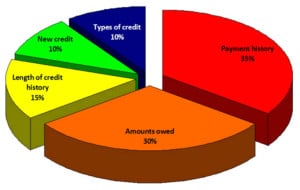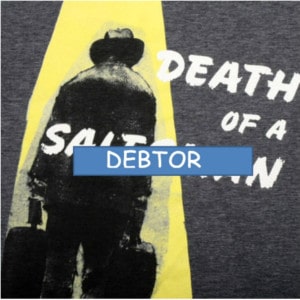 Can the employment credit check beat you up? We previously discussed whether bad credit could hurt your job search. Now we know that an employment credit check certainly can. Even though a credit score was designed to predict whether or not you’re a good credit risk when you apply for a loan, a credit card, mortgage, a car lease, etc., more often than not you now have to submit to an employment credit check when applying for a job. But, should a potential employer be allowed to check your credit score and not offer you a job if you have a low one?
Can the employment credit check beat you up? We previously discussed whether bad credit could hurt your job search. Now we know that an employment credit check certainly can. Even though a credit score was designed to predict whether or not you’re a good credit risk when you apply for a loan, a credit card, mortgage, a car lease, etc., more often than not you now have to submit to an employment credit check when applying for a job. But, should a potential employer be allowed to check your credit score and not offer you a job if you have a low one?
It sounds punitive, doesn’t it? After all, how can anyone improve their credit score without a good paying job? “There’s a certain irony that the people who are most vulnerable and who most require access to jobs could be discriminated against because they have poor credit ratings,” said Murray Rowe Jr., president of Forrest Green, a Richmond Hill-based credit advisory group.
Several states in the U.S. agree. California, Connecticut, Hawaii, Illinois, Oregon, Vermont, and Washington have enacted measures limiting the use of credit reports and the employment credit check when determining whether a person is the right fit for a job. New York City recently announced that lawmakers are expected to pass a bill prohibiting employers from reviewing the credit histories of prospective workers. And, according to a New York-based think tank, the application of credit reports has moved far beyond their intended purpose.
The federal government of Canada doesn’t agree. In fact it recently introduced mandatory credit checks as part of a new security screening procedure for public servants. Two unions representing federal employees object to the employment credit check policy and call it an unnecessary invasion of privacy.
Regardless of where you stand on the issue of employment credit check, the one thing that we can all agree on is that serious financial issues can jeopardize more than your bank account. It’s very important to deal with your financial problems as soon as possible with the help of a professional trustee and to not let them bully you. Contact Ira Smith Trustee & Receiver Inc. today. Starting Over, Starting Now you can live a debt free life and have the confidence to apply for the job of your dreams.









